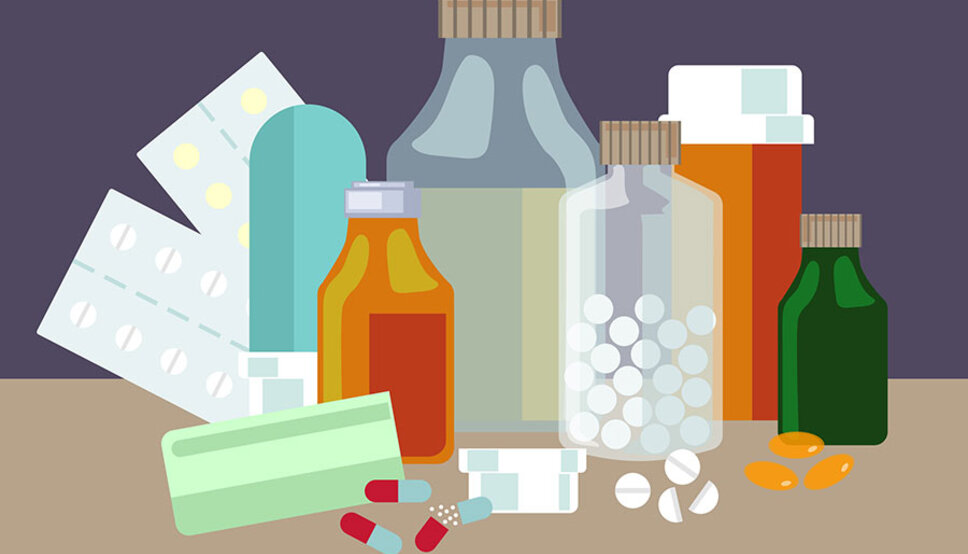Safe Use of OTC Pain Medications: What You Need to Know

Over-the-counter (OTC) pain medications are a common go-to for managing everyday aches and pains. Whether it is a headache, back pain, or a sore muscle, many of us reach for pain relievers such as ibuprofen, acetaminophen, or aspirin. These medications are easily accessible, affordable, and often effective. However, it is important to remember that just because a medication is available without a prescription does not mean it is completely risk-free.
To ensure you are using OTC pain medications safely and effectively, it is crucial to understand their potential risks, how to use them properly, and when to seek medical advice. Here is everything you need to know about using OTC pain medications the right way.
Know the types of OTC pain medications
There are several types of OTC pain relievers, each with its own benefits and potential side effects. The most common ones include:
- Acetaminophen (Tylenol): This medication is often recommended for headaches, muscle aches, and minor pain. It is safe when used as directed, but an overdose can lead to severe liver damage.
- Nonsteroidal Anti-Inflammatory Drugs (NSAIDs): This category includes ibuprofen (Advil, Motrin), naproxen (Aleve), and aspirin. NSAIDs are effective for reducing inflammation, pain, and fever. However, they can irritate the stomach lining and, if overused, may increase the risk of gastrointestinal bleeding or kidney damage.
Follow the recommended dosage
One of the most important rules when taking any OTC medication is to follow the recommended dosage. Taking more than the recommended dose can increase the risk of serious side effects, including liver damage from acetaminophen or gastrointestinal issues from NSAIDs. Always read the label carefully, and never exceed the maximum daily dose listed.
To avoid serious side effects, do not exceed these daily limits unless directed by a healthcare professional:
| Medication | Maximum Daily Dose |
|---|---|
| Acetaminophen | 3,000 mg |
| Ibuprofen | 1,200 mg |
| Naproxen | 600 mg |
If your pain is not controlled by the recommended dosage, consult a healthcare provider instead of simply increasing the dose on your own.
Use pediatric pain medications with caution
Children can be especially sensitive to medications, and the wrong type or dose can be dangerous. Always consult a pediatrician before giving any OTC pain medication to a child. Remember, aspirin should not be used in children or teenagers with viral infections due to the risk of Reye’s syndrome, a rare but serious condition. For younger children, acetaminophen and ibuprofen are typically preferred but always follow your healthcare provider’s recommendations and dosing guidelines based on the child’s weight and age.
Pain relief during pregnancy
Acetaminophen is the OTC pain reliever of choice during pregnancy. NSAIDs should be avoided during pregnancy unless your healthcare provider says otherwise as they can be associated with risks to the developing baby, especially in the later stages of pregnancy.
Check for drug interactions
OTC pain medications can interact with prescription drugs, over-the-counter supplements, and even other pain relievers. For example, combining NSAIDs with blood thinners (like warfarin) or other NSAIDs can increase the risk of bleeding.
If you are currently taking prescription medications it is important to check with your healthcare provider or pharmacist about potential interactions, especially if you take other medications or have underlying health conditions such as heart disease, high blood pressure, or liver problems.
Consider your medical history
Before taking any OTC pain reliever, consider your medical history. Certain individuals may be at higher risk for side effects:
- Liver issues: If you have liver disease, avoid acetaminophen unless directed by a doctor, as it can cause liver damage in high doses.
- Kidney issues: NSAIDs can stress the kidneys, so they should be used cautiously in individuals with kidney problems.
- Stomach ulcers or digestive issues: NSAIDs can irritate the stomach lining and increase the risk of ulcers, so they should be used with caution (or avoided entirely) by individuals with a history of stomach ulcers or gastrointestinal issues.
- Heart disease: If you have a history of heart disease, kidney disease, or high blood pressure, speak to your doctor before using NSAIDs, as they can increase the risk of heart attack or stroke.
Avoid alcohol when taking OTC pain medications
Alcohol can increase the risk of side effects when combined with OTC pain medications. For instance, consuming alcohol with acetaminophen can significantly raise the risk of liver damage. Similarly, alcohol can exacerbate the gastrointestinal issues caused by NSAIDs. To stay safe, it is best to avoid alcohol while using OTC pain relievers.
Do not use OTC pain medications for extended periods
OTC pain relievers are intended for short-term use. If you find yourself relying on these medications for more than a few days or weeks to manage pain, it is time to consult a doctor. Chronic pain might be a sign of an underlying condition that requires a different treatment approach. Prolonged use of OTC pain medications, especially NSAIDs, can lead to issues like stomach ulcers, kidney damage, and high blood pressure.
Consider non-medication alternatives
Sometimes, there are non-drug methods to help manage pain effectively. Depending on the type of pain, strategies like stretching, physical therapy, ice/heat therapy, relaxation techniques, and exercise may provide relief without the need for medication.
Expired medications and disposal
Expired medications can lose their effectiveness and, in some cases, become unsafe to use. Regularly checking your medicine cabinet for expired medications helps ensure your treatments are safe and effective. Look for expiration dates on packaging and discard any drugs that are past their date, appear damaged or have any noticeable change in color, smell, or taste. For safe disposal, use authorized disposal sites or drug take-back programs when available. Brown University Health Pharmacy locations offer MedSafe collection receptacles, a safe and easy way for patients to dispose of unwanted, unused, or expired medications. If none are accessible, follow FDA guidelines—remove medication from original container, mix medications with substances like kitty litter or coffee grounds, seal them in a bag, and throw them in the household trash.
When to seek medical advice
If you experience any of the following symptoms, it is important to stop using the OTC medication and consult a healthcare professional:
- Persistent or worsening pain despite taking the medication as directed.
- Signs of an allergic reaction, such as rash, difficulty breathing, or swelling.
- Nausea, vomiting, or unusual fatigue (possible signs of liver issues from acetaminophen).
- Stomach pain, blood in stools, or dark, tarry stools (possible signs of gastrointestinal bleeding from NSAIDs).
- Any unusual or concerning side effects not listed on the medication’s label.
All pain relievers are not created equal and not every option is right for everyone. OTC pain medications can be an effective and convenient solution for temporary pain relief, but they come with risks if used improperly. By following the recommended dosages, being mindful of potential interactions, and considering your individual health needs, you can use these medications safely. If your pain persists or worsens, always consult with a healthcare provider to explore other treatment options.

About the Author:
Bethany Carroll, BS, RPh
Bethany Carroll is the Director of Retail Pharmacy Services at Brown University Health Pharmacy.
Generic Versus Brand Medications

For many medications, there are often brand name options as well as generic versions or store brands available. Unfortunately, generic medications are often misunderstood.
Find a Doctor

The right provider is in our network
Search more than 1,200 providers in our network.



